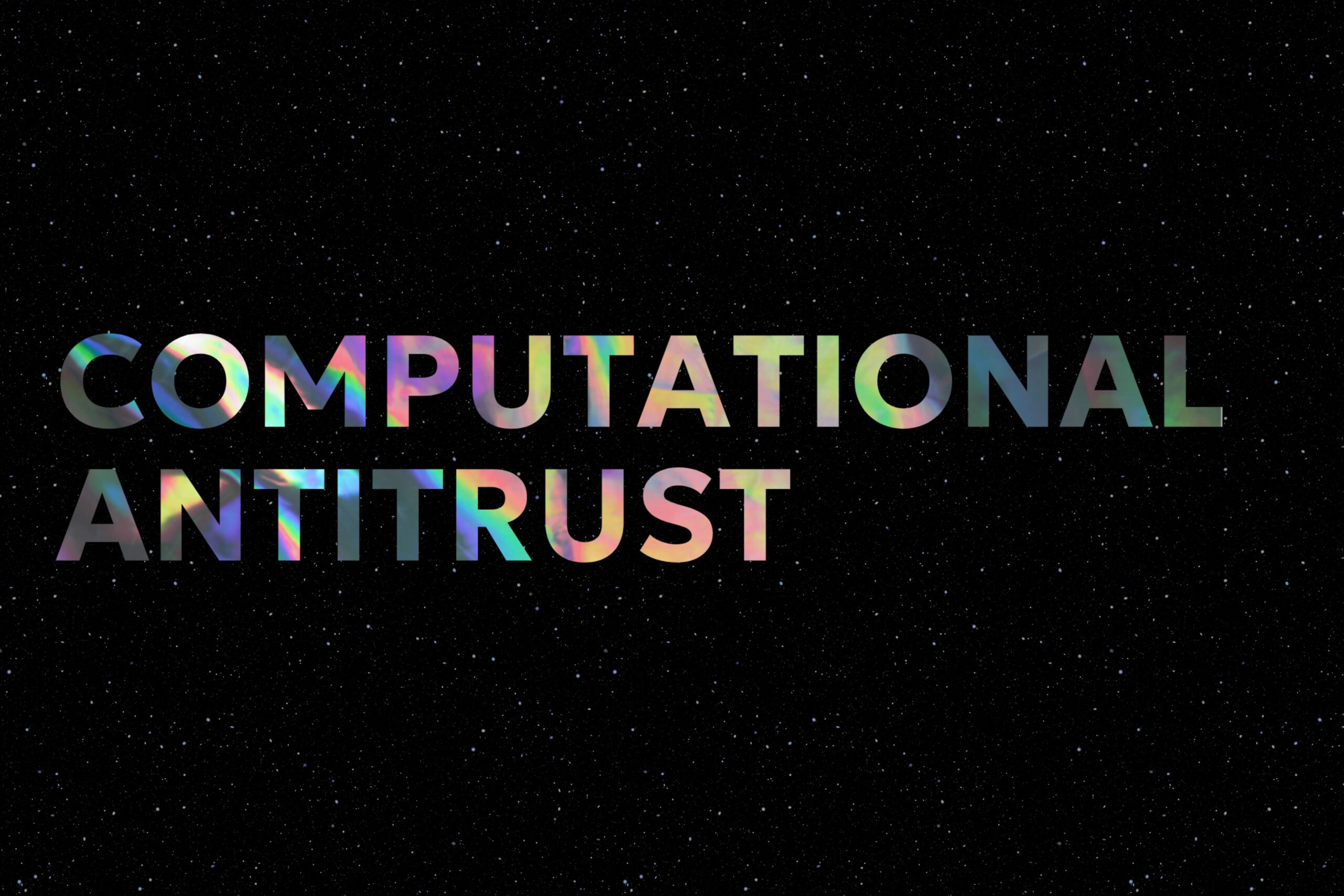We often talk about “history books” as if such things still existed, or mattered. Oh well, for what it’s worth, let me discuss the first (U.S.) case of blockchain antitrust.
We long thought United American Corp. v. Bitmain was the one (read). In this case (filed in December 2018), United American Corp. acted against various firms (including those of prominent Bitcoin investor Roger Ver) alleging they schemed to hijack the Bitcoin Cash network. The court dismissed the first version of the suit in February 2020, and the plaintiff filed an amended complaint at the end of the same month. The issues at stake are fascinating.
It appears however that Bitmain is not the first case of blockchain antitrust. While I was doing some research for the article I published a few weeks ago (“Analyzing one decade of blockchain litigation“), I found out about another one, filed in September 2018: Gallagher v. Bitcointalk.org (case number 3:18-cv-05892). The ruling also precedes that of Bitmain. Let us explore all that.
1- The facts
On September 24, 2018, Ryan Gallagher (a Bitcoin enthusiast in his twenties) filed a claim to the U.S. District Court for the Northern District of California claiming that the defendants – Bitcointalk.org, Martti Malmi (a Bitcoin developer), and the Bitcoin Foundation – were “operating an illegal monopoly.“
He explained: “I have been a member of the website Bitcointalk.org since 2011 or 2012, when Bitcoin was $5 each. (…) I was going to be creating cryptocurrency towns. The defendants, together, used (…) Bitcointalk.org to deny me any ability to compete by banning me, and slandering my name even though I had 0 negative points in their reputation system.” According to the plaintiff, the practice amounted to “monopolizing the cryptocurrency technology on their website,” more specifically, to a violation of Section 1 of the Sherman Act. Gallagher asked for “damages, both actual and punitive, in the amount of $5,000,000” and applied to proceed in forma pauperis.
On November 27, 2018, the Court held that Gallagher’s “application to proceed in forma pauperis was incomplete. (…) Plaintiff was warned that failure to do so could result in a report and recommendation that this action be dismissed for failure to prosecute. To date, Plaintiff has not paid the filing fee or otherwise communicated with the Court.” Indeed, Ryan Gallagher never filed a “complete accounting of his income and expenses.” As he was asked to “submit the $400 filing fee,” but never did so, “the Court therefore recommend[ed] that the newly assigned district judge dismisses this action without prejudice.” On January 2, 2019, the court dismissed the action without prejudice.
A few months after, on May 14, 2019, Gallagher “realledg[ed] the facts from the case” in a new case before the Texas Northern District Court (Gallagher v. The Bitcoin Foundation, case number 3:19-cv-01151). He explained that “all Bitcoin and Cryptocurrency activity and discussion are centered at Bitcointalk.org. If you created a currency today, even if you made it from scratch and it had no resemblance to the Bitcoin Blockchain, if you want it to work, it absolutely has to have a presence on Bitcointalk.org.” He went on saying that “the Bitcoin Foundation started the Silk Road clean up, in 2013. (…) I was banned [from Bitcointalk.org] for being extremely involved but not being a developer or even a programmer or nerd even (…) Because of this, I do not have access to the marketplace, or resources such as crypto developers, as everyone is forced to congregate at Bitcointalk.org.” He asked the court to stop “the Bitcoin Foundation from deciding who wins and losses in the cryptofield,” and sought damages of $250,000.
On May 24, 2019, a United States Magistrate Judge underlined that “Gallagher is no stranger to the federal courts. A review of the Public Access to Courts Electronic Records (PACER) reflects that he is a serial litigator, having filed over 30 cases since 2016 in federal district courts nationwide,” adding that “because of his abusive filing history, the District of Colorado has already imposed pre-filing restrictions. Id. prohibiting Gallagher from filing any new action . . . without the representation of a licensed attorney.” According to the Judge, “[e]ven under the most deferential view, Gallagher’s complaint is legally and factually frivolous and malicious. Gallagher presents no supporting legal authority for the claims he asserts. Moreover, his factual contentions are clearly baseless and woefully inadequate to support any cognizable claim.”
As a result, the Judge found that “it [was] highly unlikely that, given the opportunity, he could allege cogent and viable legal claims. Thus, the Court conclude[d] that granting leave to amend under these circumstances would be futile and cause needless delay.” For these reasons, the Judge made a recommendation to the court that Gallagher’s action “should be dismissed with prejudice as frivolous and malicious. Gallagher should also be barred from filing future actions in forma pauperis and warned that persistent, unwarranted filings in this and other cases may result in the loss of electronic filing privileges.” On June 26, 2019, the Court accepted United States Magistrate Judge’s recommendation, dismissing the action with prejudice. Gallagher appealed that decision three days after. That’s all we know for now.
2- Analysis
Unfortunately, one finds too few discussions regarding the interesting antitrust aspects. Putting aside the many strange elements of this case (see the “Eloquent peasant” filed to the Court, or the “White Skin Does Not Make You White + Phrygians & Hindus” document to support his claim in appeal), several legal issues deserve our attention. They do not concern the functioning of the blockchain itself, but they ask one critical question regarding blockchain antitrust: could denying access to a blockchain facility (here Bitcointalk.org) constitute an infringement to antitrust law? Other questions regarding social media regulation must also be asked, but we’ll put them aside to focus on our subject matter.
Sherman Act Section 1
Coordinated refusals to deal are labeled as boycotts and are prohibited under Section 1 of the Sherman Act. Specifically, NYNEX Corp. v. Discon (1998) states that boycotts involving vertical schemes are subject to the rule of reason, while horizontal boycotts constitute per se violations of the Sherman Act (Klor, 1959).
In the present case, the alleged boycott was vertical. Bitcointalk.org is indeed both active on the upstream (where information and expertise are exchanged to develop products) and downstream part of the market (where products are being advertised). For that, the rule of reason would have been applied, and Gallagher would have had to show that the practice had an actual or likely anticompetitive effect. Because his cryptocurrency was still a mere idea, it would have been challenging.
Sherman Act Section 2
We know from Aspen Skiing (1985) that “[t]he high value that we have placed on the right to refuse to deal with other firms does not mean that the right is unqualified.” Although the Trinko decision (2017) has since reaffirmed the absence of any duty to deal with rivals, it remains unclear whether it applies to all situations, or solely to regulated industries (for a discussion, see Antitrust Law in Perspective, third edition, pages 639-640).
Either way, Ryan Gallagher would have had to bring his action on Sherman Act Section 2, prove that Bitcointalk.org was in a dominant position (good luck with defining the market), and show that access to Bitcointalk.org was essential for the design and launch of his product. A brief Google search would have probably convinced the Court of the opposite; even though Gallagher explained that many blockchain’s developers were on Bitcointalk.org, proving the indispensability to access the website was a long shot.
3- Epilogue
Despite these elements, the reason for which the Court dismissed Gallagher’s action may still surprise. It seems that “cogent and viable legal claims” could have been made, although they would probably have failed in the end. One, therefore, may question whether Gallagher’s claim was dismissed as a matter of substance or because of his judicial history. After all, the Judge seems to have thought the Ethereum was called “Ethercum.” It is at best an unfortunate typo, or… the showing of a potential lack of advanced knowledge regarding the blockchain ecosystem/cryptocurrencies (and, therefore, regarding which claims can be substantiated).
Regardless, Gallagher v. Bitcointalk.org is the newest first “blockchain antitrust” case… until we find one older. Let us keep on digging this fascinating topic. To explore it further, you may want to pay a visit to www.blockchainantitrust.com.
Dr. Thibault Schrepel
@LeConcurrential
***
Recommended citation:
Thibault Schrepel, The first case of “blockchain antitrust”: Gallagher v. Bitcointalk.org, CONCURRENTIALISTE (May 28, 2020)








